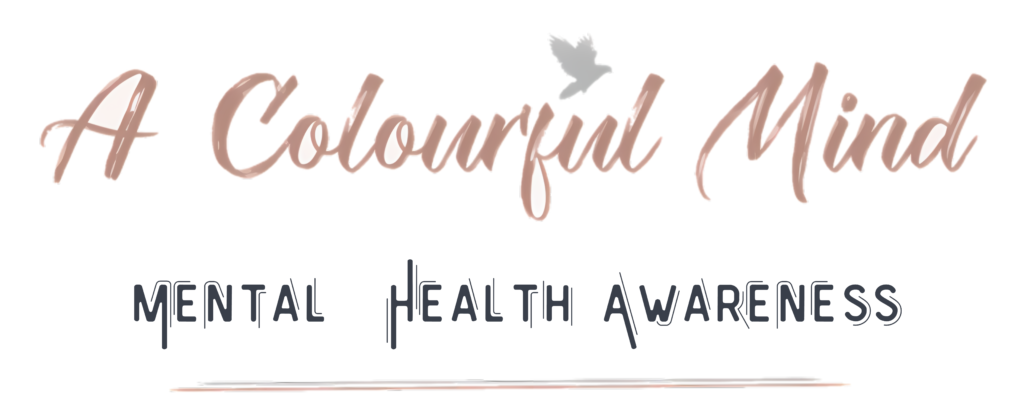Emotional abuse in the workplace: be alert!

Written by Sharon Makgare
“Treat people the way you want to be treated. Talk to people the way you want to be talked to. Respect is earned, not given.”
― Hussein Nishah
Do you feel as though you are being given unreasonable work demands? Are your accomplishments discounted? Do you feel a knot in your stomach when needing to deal with someone? Have you been feeling intimidated, insulted, put-down, sabotaged, suddenly not good enough, humiliated or even threatened you may lose your job in the workplace?
If you’ve experienced any of these or similar, you are a victim of psychological harassment.
What is emotional abuse?
Emotional abuse has been a topic for decades now, but it’s always focused in other areas and not the workplace. Psychological abuse or harassment is most times considered to be a form of emotional abuse. Emotional abuse is a type of abuse that involves controlling someone’s feelings and causing intense mental trauma. Abusers will often demean their victim, engage in victim blaming, and cause their victim to undergo intense humiliation.
Let’s dive into emotional abuse a little more…
Emotional abuse can be complicated and bewildering. It is also very hard to identify because it is not “visible” to others such as scars or cuts are. The person perpetuating it may have done it on purpose or perhaps not. It can be perpetuated by a friend, a loved one, a co-worker, a romantic partner or even a stranger. There are various reasons as to why emotional abuse exists but it is often the fruit of desire for control and power.
Being a victim of emotional abuse in any setting can affect your mental well-being as you may begin to feel violated, ashamed, uncomfortable, silenced, guilty, helpless, unworthy and so many other things all at once.
Emotional abuse in the workplace
Conflict vs Emotional abuse
Conflict is a normal part of any healthy relationship as it enables people to express their feelings, emotions, identify problems while learning in the process. Conflict is vital for growth. Without it, the system of living would be disrupted. We need healthy conflict to survive.
The concept of conflict can quickly shift to emotional abuse within a heartbeat. This is when a person suddenly feels confused or frightened or insulted or the likes. We need to be aware of the signs of emotional abuse to increase mental awareness and stability.
I took to the streets to hear what people had to say about this dire issue and asked them to share their thoughts and/or experiences:
“When your superior is always threatening to fire you, it’s a sign of emotional abuse because you become super anxious in that work environment. Or if they’re telling you, you can’t do your job so you’d be better off leaving the job. Emotional abuse could lead to depression, lack of fulfilment and joy in one’s life”
– Tshepang
“The Benoni Traffic Department caused me a lot of emotional and psychological trauma. We were threatened and abused physically but no one would hear our reports, instead people would either get their grievances torn, warnings or get dismissed. We worked in fear and got red cards for no reason at all. I strongly believe she made most of the things up just to be in control. I was forced to go on early retirement because I was on medication for a mental condition. The bosses or Unions would not stand up for me so I had no leg to stand on. I tried to explain my situation but was told returning to work would get me fired, and it did. My paperwork was done while I was on sick leave. By the time I got back I was no longer an employee. I was dismissed unfairly due to living with depression.”
– Ex staff of the Traffic Department
“Micro management is designed to make people feel as though they are being watched and one mistake is the end.”
-Nkosinathi
“I feel that managers want to control your mind and make it a point that their positions give them the right to own your life. They are not transparent about happenings and tend to enjoy painting pictures where you’ll be reported to the senior manager or process will be followed. They use their authority to implement processes in place and it seems process does not apply to them. The manipulation and lies affects you deeply, not only emotionally but spiritually. You feel as though you are treading on thin ice at all times.”
-Adrianne
Conflict in the workplace/ Emotional abuse in the workplace #workplace bullying
The average person spends 176 hours at work in a single month, meaning they are at work for 2112 hours in 12 months; excluding overtime and weekend shifts. That’s a ridiculously long time to be unhappy, don’t you think?
The workplace is a great place to be because many people tend to accomplish many goals which include financial stability, security and so forth but it is the ideal place for emotional abuse and an imbalance of power which often lead to people being harassed, excluded, offended, attacked, and even ostracized; referred to as workplace bullying. There are many forms of emotional abuse you need to be aware of, including:
Emotional Control:
This is when the abuser does not miss an opportunity to pass an insult or put you down. They tend to be indirect and rather sly about this “delivery”.
- They may call you names and use insulting language to win an argument.
- They may give you the silent treatment, making it a point to toy with your emotions. The point here is having the abused bewildered and uncertain as to why the sudden cold shoulder, until it eventually eats you away and your focus and productivity is affected at work.
- They will publicly humiliate you by attacking you in front of others or even worse, in front of your boss.
Isolation:
- As if the silent treatment isn’t enough, they will exclude you from activities such as gatherings, events, team buildings or even meetings or opportunities for growth as a means to sabotage you.
- They will refute your point of views in meetings or group settings, shooting you down when opportunity arises.
- They will make you feel as though your existence is not important by looking through you and pretending you are not there. This will inevitably make you feel out of place, affecting your productivity and time spent at work in the long run
Intimidation
- Abusers who favour this method are not discreet about it. Its usually the supervisors who take prey on the subordinates. They may ridicule the victims by making them seem incapable of handling work demands so to look good to top management.
- Observing your every move, known as micromanagement, as an attempt to put you on edge and make you anxious until you crack.
- They may even take credit for your hard work as a means to prove their authority.
The Never-ending Threats
- They will threaten you openly as a means to punish or even damage you.
- As a means of manipulation, they may threaten you on job termination or even breathe down your throat about performance evaluation.
- They may give you unreasonable demands and make it known what will happen should you fail, most likely the end for you here.
Economic control
- They will blackmail you and give you ultimatums to force you to give them what they want knowing that the fear of not having a source of income will drive you to do as they say.
- They will treat you unfairly by making you feel frustrated and discouraged by recognizing others, even the bottom performers, besides you.
Management Privilege
- They will want you to jump when they say so and be at their beck and call whenever they require it.
- They will refuse to credit you when you deserve it as a means to spite you.
- They will criticize you whenever opportunity arises and only give you compliments when they are left with no choice.
- They will practice favouritism and side-line you just to prove a point.
- They will assign you undesirable work to increase your workload and even request unrealistic deadlines because these suckers just never run out of unpleasant tasks.
Inciting Mobbing
- They will create a conflict and make certain you’re left in the middle with the ultimate goal of leaving you feeling distressed.
- They may convince other employees into making you feel isolated and alone, making it even harder for you to feel as though you belong.
- They may even drag their superiors into this abusive cycle by accusing you of acts not performed, lying about you so you look incapable with the sole purpose of making life difficult and unmanageable at work; resulting in you feeling hopeless and leaving.
Minimization, denial & misplaced blame
- Should they be confronted about their abuse, they will make it seem as though they never intended to hurt you and how it was all nonchalant.
- They will turn things around and make you look like the bad dude and even accuse you of not being able to handle work pressure and stress.
- They will blame it all on you as an attempt to lower your self-esteem until you cave and believe it was all your fault when it was not.
No one should have to wake up daily and succumb to workplace bullying. No one should feel humiliated, intimidated or even uncomfortable in a work environment because that leads to low self-esteem and/or self-confidence issues and mental health being affected. The work place is designed for growth and enriching our livelihoods not to tear us down and trigger mental unrest. We all need to be aware of what to look out for so to stop this conduct and help enhance a safe and desirable work environment for all.
If you or someone you know is struggling to cope, know that there is help available. You are not alone. You are not weak. You can head to your Human Resources Department and/or contact the below:
☎️ Suicide Crisis Helpline: 0800 567 567 (24hr line)
☎️ Depression & Anxiety Helpline: 0800 70 80 90 (8am to 8pm)
☎️ Mental Health Helpline: 0800 456 789 (24hr line)
☎️ Substance Abuse Helpline: 0800 12 13 14 (24hr line)
☎️ WhatsApp Chat Line: 076 882 2775 (9am to 4pm)

